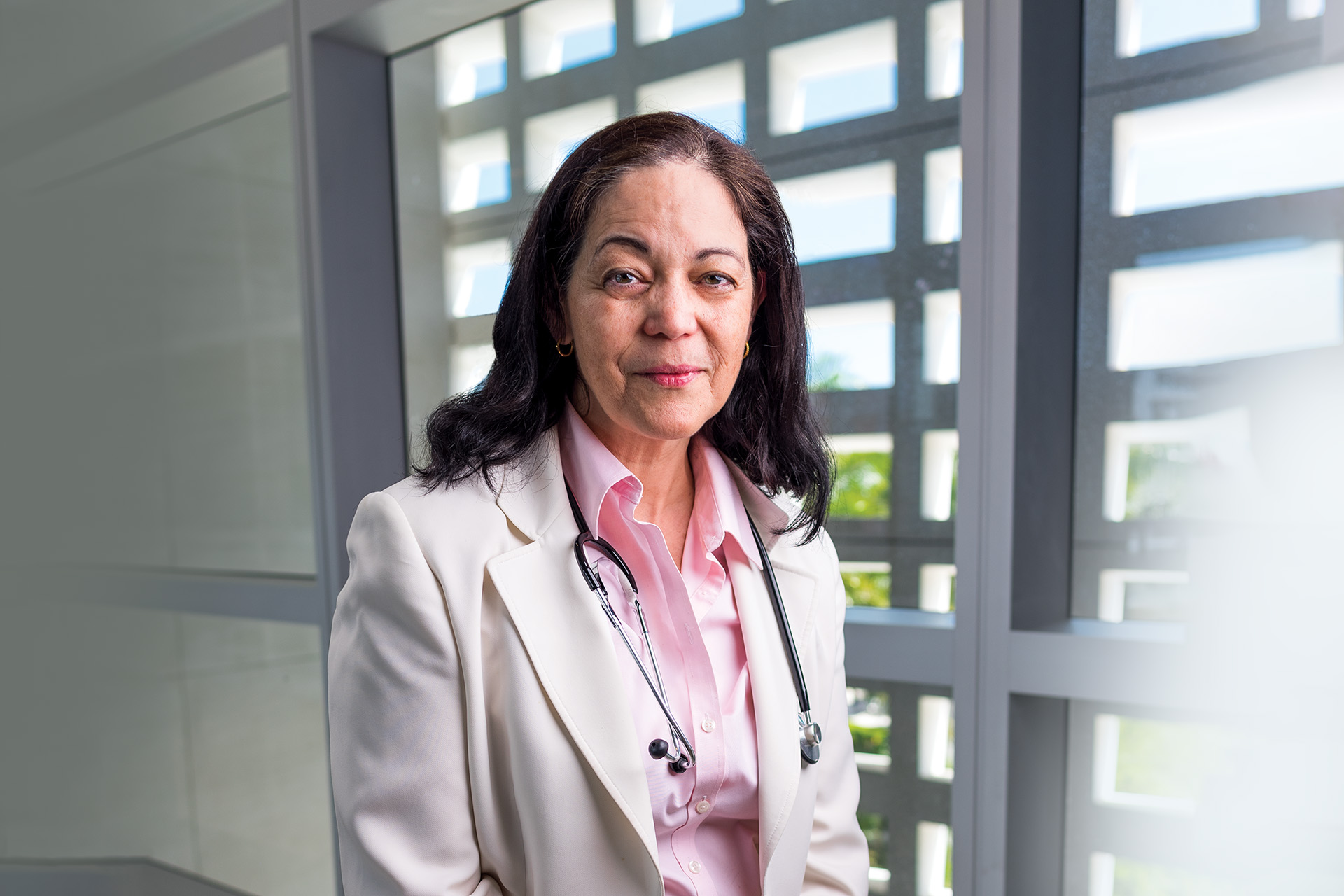Outbreak Expert
When a new infectious disease breaks out anywhere in the world, Aileen Marty, M.D. ’82, gets the call
By Hannele Rubin

OOn January 30, when the World Health Organization declared the new coronavirus — now officially named COVID-19 — a “public health emergency of international concern,” Dr. Aileen Marty’s phone had already been ringing for weeks.
Dr. Marty, a graduate of the University of Miami Miller School of Medicine Class of 1982, is one of the world’s foremost experts in strategic response to infectious diseases. In fact, it has been said that there isn’t an infectious disease agency on the planet that doesn’t have her number on speed dial. There is a good reason for that: Dr. Marty has seen more than her share of infectious diseases — often up close in far corners of the world.
Despite her global reputation, this wasn’t the career she planned for. Born in Havana, Dr. Marty and her family fled Cuba after Fidel Castro assumed power in 1959. They were welcomed to the United States, she said, and when she joined the Navy in 1978, it was, for her, a way of giving back. She entered the Miller School that same year — “it had a great reputation, and my medical training was phenomenal,” she recalled — and her initial career plan was a general surgery track followed by an ear, nose, and throat specialization.
But in 1982, Dr. Marty was reassigned to a pathology lab at what is now the Walter Reed National Military Medical Center in Bethesda, Maryland. The National Institutes of Health was right across the street, and she began collaborating with leading experts there on infectious diseases.
When the Gulf War started in 1990 and the Soviet Union began to break apart, Dr. Marty says that “we found out how enormous the Soviet biological warfare agency was.” So she was transferred to the State Department, where the focus of her work changed again. Instead of working on malaria and leprosy, her research shifted to anthrax, ebola, plague, and brucella.
For Dr. Marty, geopolitical events have meant traveling the world to study, teach, treat, consult, and monitor. Over the years, she has acquired expertise in a broad range of subjects: tropical medicine, infectious diseases, public health, mass gatherings, disaster response, and medical response and policy involving weapons of mass destruction.
Retired from the Navy since 2003, Dr. Marty is now a professor of infectious diseases at Florida International University’s Herbert Wertheim College of Medicine. She also helped create the FIU-FAST (Florida Advanced Surgical Transport) team, a unit of medical professionals who volunteer to deploy during natural disasters. “Florida is the only state in the U.S. to have a team like this,” she said proudly. “We can travel anywhere in the world and have our portable ICU set up in 58 minutes.”
Still, most of her work is done by phone handling risk communication. “I take the information coming in from affected areas, make it understandable for non-scientists and talk to the media,” Dr. Marty said. “The key is getting the right information to the right audience at the right time.”


